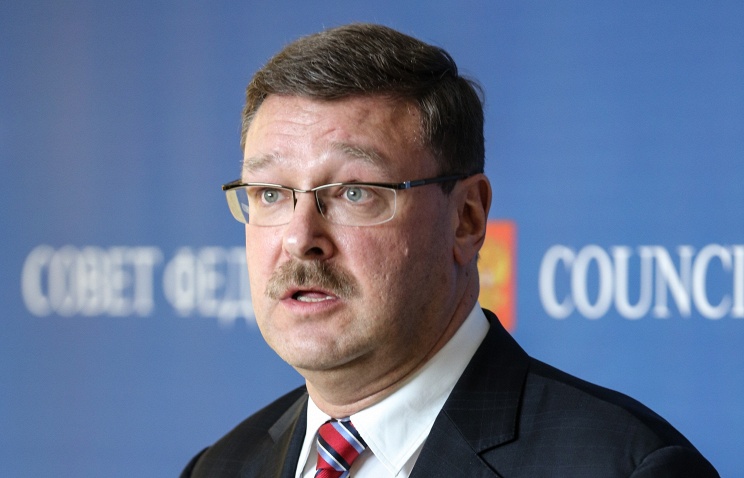A senior lawmaker from Russia’s parliamentary upper house said on Wednesday he believed that east Ukraine’s republics of Donetsk and Lugansk stating readiness to postpone local elections to next year had therefore confirmed their willingness to hold dialogue with Kiev.
Konstantin Kosachev, chairman of the Federation Council’s Foreign Affairs committee, told journalists upon his arrival at the airport in Kenya’s capital Nairobi: “I believe this can certainly be regarded as a demonstration of goodwill and readiness of Donetsk and Lugansk to agree with Kiev.”
The concession by the republics “gives some hope that the Minsk process will receive a serious boost,” Kosachev said, adding that the move signalled that the Donetsk and Lugansk authorities considered the peace agreement reached in Minsk, Belarus, in February “a valid and effective document” and were ready to implement it in full “if Kiev does the same”.
“This has been clearly stated in their announcement,” he said, noting also that in the Minsk peace process a lot depended on Ukraine’s current authorities.
The lawmaker expressed hope that the republics’ decision to postpone elections would help to improve the atmosphere around the Minsk agreement. The fact that the concessionary move followed talks last week between the leaders of Russia, Ukraine, France and Germany on the crisis indicated the influence of Russia’s authority on the republics’ leadership, Kosachev said.
“It’s certainly up to Kiev now,” he said, adding that he also expected “similar work with Kiev” from other members of the ‘Normandy Four’ – Berlin and Paris.
The Donetsk and Lugansk republics said in a joint statement on Tuesday that they were pushing back local elections to next year in line with Western demands but in exchange they wanted Kiev to fully comply with the Minsk accords.
“We announce the consent of the Donetsk and Lugansk people’s republics to postpone elections from October 18 and November 1 to next year,” the political negotiators of the two self-proclaimed republics said, noting that the decision had been made after the republics examined the results of last week’s negotiations between the Russian, Ukrainian, French and German leaders, who met in Paris to discuss the Ukraine peace process.
Local elections in east Ukraine’s Donbass region are seen as a key element of the February 12 comprehensive action plan to fulfil the Minsk accords worked out by the leaders of Russia, Ukraine, Germany and France in the search for peace in the embattled region.
The deal, announced after more than 16 hours of discussions between Vladimir Putin, Pyotr Poroshenko, Francois Hollande and Angela Merkel in the Belarusian capital, envisaged immediate and full bilateral ceasefire between Ukrainian government forces and people’s militia starting from February 15.
This was to be followed by withdrawal of heavy weapons from the line of military engagement by at least 15 kilometres (9 miles), prisoner release and agreement for international observers to monitor the truce.
Among the terms of the deal were also a commitment to grant wider self-rule to the Donetsk and Lugansk regions, and calls for talks on their long-term status.
comments powered by HyperComments






